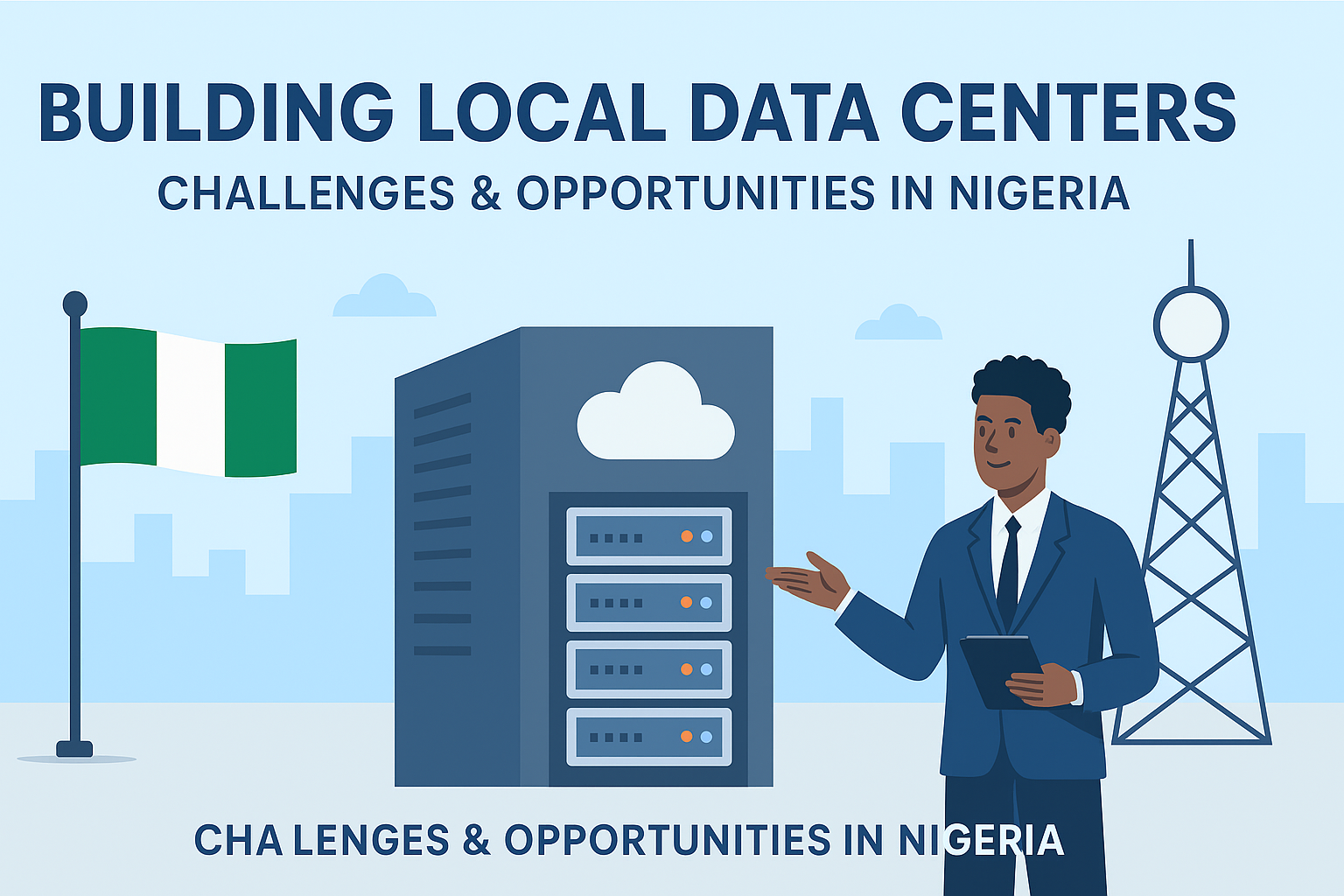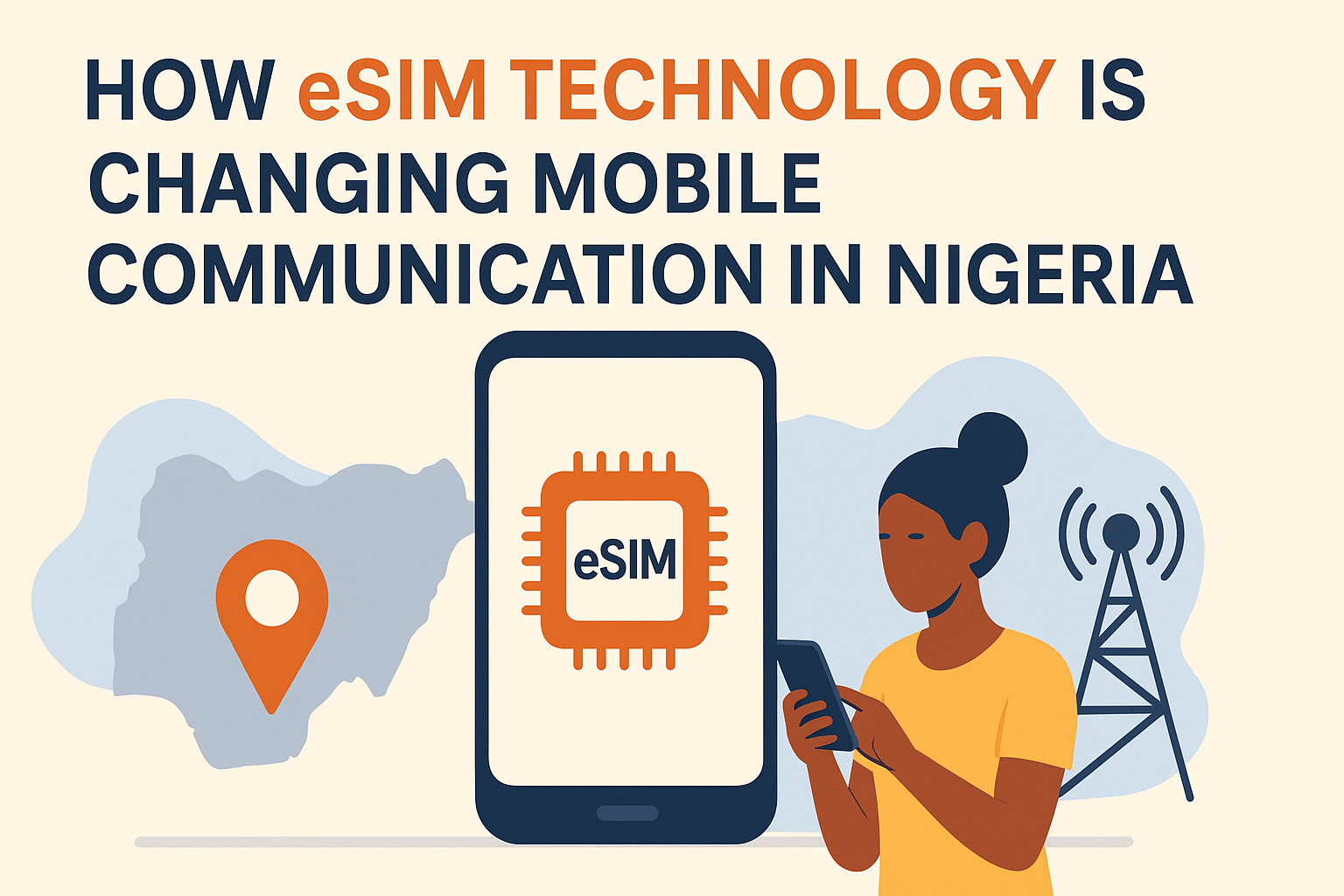Building Local Data Centres in Nigeria: Challenges, Opportunities, and the Future of Digital Growth
As Nigeria’s digital economy grows rapidly, the demand for reliable local data centres is at an all-time high. From fintech apps to e-commerce platforms, education technology, and government digital services, businesses rely on stable data hosting to function efficiently. While international data centres in Europe and the U.S. still power much of Nigeria’s internet activity, local data centres are emerging to fill a critical gap.
This article explores the challenges and opportunities facing Nigeria in building local data centres and why they are crucial for the country’s digital transformation.
Why Local Data Centres Matter in Nigeria
A local data centre is a facility within the country that houses servers, networking equipment, and storage systems to host digital services. Instead of routing data traffic abroad, Nigerian users can connect directly to a nearby facility, which offers multiple advantages:
- Reduced latency: Faster response times for apps, websites, and streaming services.
- Data sovereignty ensures that sensitive information is stored within Nigeria’s legal jurisdiction.
- Lower costs: Reduces international bandwidth charges.
- Improved reliability: Local infrastructure minimises disruptions from undersea cable cuts.
These benefits are essential for industries such as banking, telecommunications, e-commerce, healthcare, and government services.
Read also: AI for Healthcare in Nigeria: Free Tools and Innovations Making a Difference
Key Challenges in Building Local Data Centres in Nigeria
Despite the demand, setting up and maintaining local data centres comes with major challenges:
1. Power Supply Issues
Unreliable electricity is perhaps the biggest challenge. Data centres need constant power to maintain uptime, but Nigeria’s grid is unstable. Operators often rely on expensive diesel generators, which increases operational costs.
2. High Infrastructure Costs
Building a Tier III or Tier IV data centre requires massive investment in cooling systems, power backup, fire suppression, and advanced networking equipment. Many Nigerian companies lack the capital to fund such infrastructure.
3. Regulatory and Policy Gaps
While Nigeria has ICT and data protection policies, clear regulations and incentives for data centres are still evolving. This slows down adoption and discourages foreign investment.
4. Skilled Workforce Shortage
Running a high-performing data centre requires skilled IT professionals in cybersecurity, networking, and cloud engineering. Nigeria faces a talent gap, which adds to operational risks.
5. Security and Reliability Concerns
Data centres must ensure physical security (guards, surveillance) and cybersecurity against hackers. With increasing cyberattacks in Nigeria, security remains a top priority.
Read also: What Factors Does Google Consider When Paying for AdSense? (2025 Guide for Publishers)
Opportunities for Local Data Centres in Nigeria
Despite these challenges, the opportunities are enormous:
1. Digital Economy Growth
Nigeria’s digital economy makes a significant contribution to the country’s GDP, with fintech, telecoms, and e-commerce sectors leading the way. Local data centres can support this growth by hosting applications locally.
2. Cloud Computing and AI Adoption
As Nigerian businesses embrace cloud computing, artificial intelligence, and big data, they need scalable infrastructure. Local data centres can serve as cloud hubs for small and medium enterprises (SMEs).
3. Government Digital Transformation
Nigeria’s government is pushing for digital identity systems, e-governance, and smart city projects. These require secure and reliable local hosting to meet compliance and efficiency standards.
4. Regional Internet Hub Potential
With its population and growing tech ecosystem, Nigeria can position itself as a West African data hub, serving neighbouring countries if it expands its infrastructure.
5. Job Creation and Skills Development
Investment in local data centres creates jobs in engineering, security, cooling management, and IT services while boosting Nigeria’s talent pipeline in the tech sector.
Read also: Getting Started with AI Courses in Nigeria (2025): Best Local & Global Platforms
Current State of Data Centres in Nigeria
Several companies are already investing in Nigeria’s data infrastructure:
- MainOne (MDXi): Operates one of West Africa’s largest Tier III data centres in Lagos.
- Rack Centre: A carrier-neutral data centre that provides colocation services.
- Galaxy Backbone: Government-owned infrastructure supporting e-governance.
- Foreign investments: Global players are exploring Nigerian partnerships as demand increases.
What Needs to Be Done
To maximise opportunities, Nigeria must address key gaps:
- Government incentives: Tax breaks, grants, and clear policies to attract investors.
- Infrastructure development: Expanding reliable electricity and internet backbone.
- Public-private partnerships (PPPs): Collaborations between government, telecoms, and private investors.
- Capacity building: Training more engineers and IT specialists in data centre operations.
- Cybersecurity frameworks: Stronger policies to protect sensitive data.
The Future of Data Centres in Nigeria
The next five years will be critical for Nigeria’s digital infrastructure. With 5G networks expanding, rising internet penetration, and businesses going digital-first, the demand for local hosting will skyrocket.
If Nigeria successfully builds and scales local data centres, the country will:
- Reduce reliance on foreign servers.
- Strengthen digital sovereignty.
- Improve internet experience for millions.
- Attract global investments.
Read also: The Future of Remote Work in Nigeria (2025 Guide): Best Tools, Platforms, and Opportunities
Conclusion
Building local data centres in Nigeria comes with significant challenges, but the opportunities are even greater. With the right policies, investments, and skilled workforce, Nigeria can become a regional leader in digital infrastructure.
As more businesses, governments, and individuals move online, local data centres will be the backbone of Nigeria’s digital future.
If you’re a business owner, policymaker, or investor in Nigeria, the time to act is now. Investing in local data centres is not just a technological move — it’s a strategic decision for Nigeria’s digital independence and growth.







